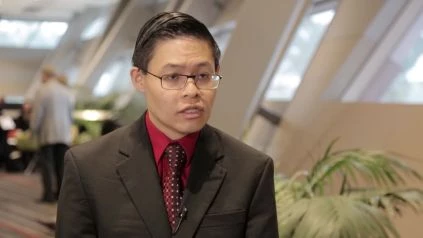David Hui, MD, MSc of MD Anderson Cancer Center, Houston, TX discusses end-of-life decisions faced by a clinical team. Understanding patients disease stage compared with their prognosis has a major impact on the decision making process. Doctors should personalize goals of care and discuss guidelines with their patients, which may answer some of the common misconceptions like thinking that more nutrition means better patient outcomes. Defining comfortable death is a challenging issue. Dr Hui mentions that with the use of technology it is possible to ensure optimal symptom control, however, patients experience different symptoms. Some of these symptoms can be easily controlled, while others like shortness of breath can be more difficult to manage. Through education and counselling, doctors can support patients and their families at the end-of-life stage of the disease. Recorded at the Multinational Association of Supportive Care in Cancer (MASCC) and International Society of Ocular Oncology (ISOO) 2016 Annual Meeting on Supportive Care in Cancer held in Adelaide, Australia.
[the_ad id="32629"]

